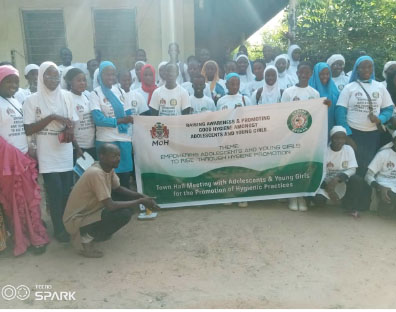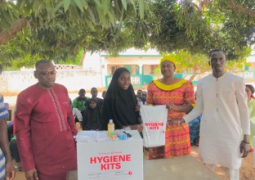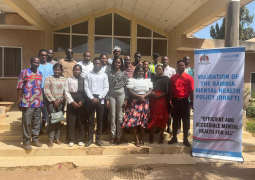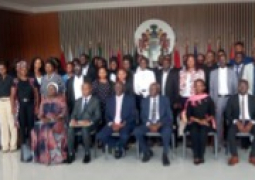
The call was made on Saturday during a day’s town hall meeting with key stakeholders including students at a ceremony held at the Region Six Education Directorate in Basse, Upper River Region
The initiative funded by the West Africa Health Organization (WAHO), a sub-regional health initiative, was jointly implemented by the Ministries of Health (MOH) and Basic and Secondary Education (MOBSE).
Held under the theme; ‘Empowering Adolescents and Young Girls to Rise Through Hygiene Promotion.’, the event attracted students and a cross-section of the community of Basse and beyond.
Further, this town hall session was aimed at orienting adolescents and young girls and the need for local communities to adapt to sound environmental management initiatives.
Welcoming the gathering, Baboucarr Jarju, Principal Education Officer, Region Six, hailed the initiative, which he said, is all geared towards enhancing and bettering communities.
He called on participants to be ready to share the knowledge gained in their respective communities, pointing that rights also go with responsibilities.
Jarju equally called on students to be agents of change and contribute towards sound environmental management to live a healthy live.
“Cleanliness is godliness and we all yearn to have good hygiene. And there is a need for attitudinal change towards the environment. Be ready to share the knowledge gain from this forum.”
Also speaking, Babou B. Cham from the Directorate of Health Promotion and Education at the Ministry of Health, explained the town hall engagement is part of a three-day activity with adolescents and young girls in bid to dialogue to promote good hygiene practices in communities.
The activities, he went on, includes, sharing key insights ranging from personal hygiene, food and environmental hygiene and sanitation.
Masanneh Jallow, Life Skills Unit at the Ministry of Basic and Secondary Education (MOBSE), emphasised the importance of the exercise, saying the rationale behind it is to contribute to clean personal and environmental management.
‘Let’s always remember that if the environment where we live in is not clean, then human beings will not be clean and vice versa. When you take care of your environment, the environment will take care of you.’
Jallow reminded participants that it is their duty as those lucky to be part of the initiative to learn and share with others so as to make the country free from diseases.
To that end, he made refence to the popular adage that prevention is better than cure and that to prevent disease, one has to clean himself and the environment.
Some of the participants who shared their thoughts with this medium thanked the Ministry and sponsors for reaching out and sensitising them on key aspects of good hygiene and sanitation. They expressed their resolve to share the knowledge gained with the wider community, as they put it, together ‘we can contribute a safer society.’
Read Other Articles In National News

Doune Lounge restaurant opens in Bijilo, showcasing classic Turkish cuisine
Feb 13, 2026, 1:19 PM




